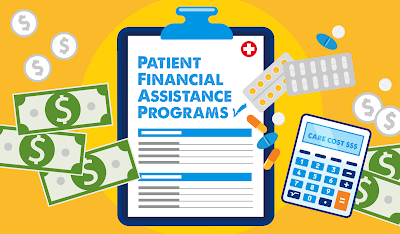By: Brandon M. Macsata, CEO, ADAP Advocacy Association
The ADAP Advocacy Association earlier this week launched its new Member365 ADAP Community, which is an online portal designed to raise awareness, offer patient educational programs, and foster greater community collaboration. Ultimately, value-driven community engagement will increase support for the AIDS Drug Assistance Program (ADAP) by further connecting people living with HIV/AIDS, advocates, community organizations, healthcare groups, government agencies, pharmacies, pharmaceutical companies and other stakeholders.
Ryan White HIV/AIDS Program and ADAP stakeholders can create their new member profile at https://tinyurl.com/p63s2mde.
The Covid-19 pandemic has changed the public health paradigm, and the ADAP Advocacy Association is staying ahead of the curve to ensure advocacy efforts remain relevant. The new Member365 ADAP Community allows members to manage their profile, engage directly with other Ryan White HIV/AIDS Program stakeholders, register for advocacy and educational events, contribute to threaded discussion boards, post job vacancies, and participate in flash surveys, among other things. The Member365 technology presently is being used by some other leading health organizations, including the U.S. Centers for Disease Control & Prevention (CDC), New York State Pain Society, and Canadian Society of Physician Leaders.
 |
| Photo Source: Member365 |
The Member365 ADAP Community builds on the success of the patient-centric ADAP Directory, The which is a convenient online resource to locate AIDS Drugs Assistance Program information for all U.S. states and territories. The ADAP Directory is available online at https://adap.directory.
Murray Penner, U.S. Executive Director for the Prevention Access Campaign (U=U) summarized, "In my 25 years working with ADAPs in a variety of capacities, I've always felt as though the program is one of the most impactful HIV programs in our nation's response. And it always feels like it's cobbled together with tape and paper clips and on the verge of collapse at various places. This new space will build critical awareness and connections for advocacy and we look forward to being a part of it."
Jen Laws, independent policy consultant and ADAP Advocacy Association board member, agrees. "We are witnessing unprecedented challenges facing our public health infrastructure, due to Covid-19. Simply look at what is happening in Arizona, Georgia or Texas. Stakeholders need to communicate more effectively with one another to better address health disparities and social determinants of health. The Member365 ADAP Community will allow us to do so in the HIV space, including a critically important opportunity for partners in advocacy to recruit talent from affected community via job postings."
The Member365 ADAP Community includes the following organizational partners:
- Advocacy Organizations - Community Access National Network (CANN), HealthHIV, North Carolina AIDS Action Committee (NCAAN), Prevention Access Campaign, RAD Remedy, Southern Black Policy & Advocacy Network (SBPAN), Triangle Empowerment Center
- AIDS Service Organizations - AIDS Alabama, Community Education Group
- Healthcare Organizations - Legacy Health Endowment
- Patient Assistance Programs - MedData Services, NeedyMeds, Patient Access Network (PAN) Foundation, Patient Advocate Foundation (PAF)
- Pharmaceutical Industry Partners - AbbVie, Gilead Sciences, Janssen Pharmaceutical Companies | Johnson & Johnson, Merck, Theratechnologies, ViiV Healthcare
- Pharmacy Benefit Mangers - Magellan Health, Ramsell Corporation, ScriptGuideRx
- Pharmacies - Avita Pharmacy, Maxor National Pharmacy Services Company, Walgreens
- Professional Associations - Professional Association of Social Workers in HIV/AIDS (PASWHA),
- State Departments of Health - ADAP Coordinators & Linkage to Care Coordinators
- Trade Associations - Partnership for Safe Medicines, Pharmaceutical Research and Manufacturers of America (PhRMA)
Disclaimer: Guest blogs do not necessarily reflect the views of the ADAP Advocacy Association, but rather they provide a neutral platform whereby the author serves to promote open, honest discussion about public health-related issues and updates.




